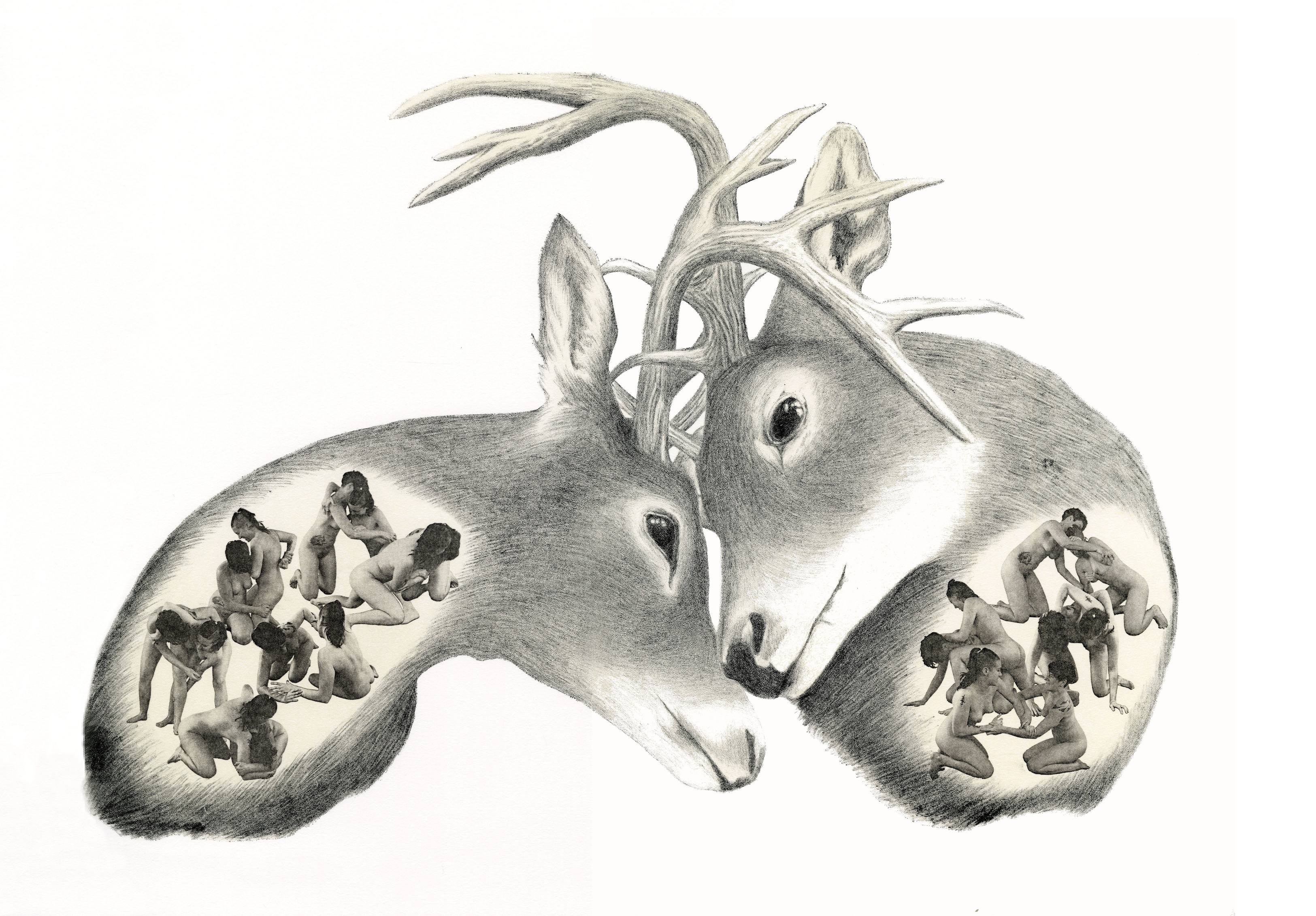NEGOTIATIONS
Corinne Teed
PDF of this Piece // PDF of Issue 3
ABSTRACT: Negotiations explores the intersections of tenderness, play, and power in queer relationality, aligning these affects with animal nature-cultures. Two bucks lock horns while their muzzles lean in for a soft caress. While this pose is often interpreted as two males battling for dominance in a reproductive hierarchy, Negotiations prompts the viewer to question the nuances of the bucks’ seemingly tender relationship and, by association, the wrestlers’ relationship. As a species, white-tailed deer express an array of homosexual behaviours and intimacies. However, this area of zoological study has been historically dismissed as animal sexuality was solely understood as expressive of a drive to procreate for evolutionary purposes. In this drawing, the queer wrestlers and the bucks interpolate back and forth, emotional outlaws marginalized by speciesism and heterosexism, suggesting potential affective solidarity in a world that often seeks to domesticate and silence their experiences.
Artist Statement
I am interested in the utopic visions crafted from shared sites of marginalization that enable new biopolitical, multispecies communities. While potential alliances between queers and animals have populated queer scholarship for some time, dominant culture has relegated queers and animals to similar sites of subjugation and abjection. Foregrounding queer experience as maintaining commonalities with the animal world has a slippery past. Connotations of wild animals and ferality remain mostly negative: for example, human sexual acts which are coded as abhorrent are often described as “animal” and “bestial.” However, in the book Animacies: Biopolitics, Racial Mattering and Queer Affect, Mel Chen uses theories of animacy to dismantle the logic of hierarchical subjectivities embedded within late capitalism, thus calling into question the negative connotations of the past. Chen refers to new biopolitical affiliations as improper and essentially queer, describing queerness as “social and cultural formations of ‘improper affiliation’ so that queerness might well describe an array of subjectivities, intimacies, beings, and spaces located outside of the heteronormative” (104). As much as the erasure of animals from the sphere of politicized subjectivity is understood in Chen’s text to be patriarchal, the inclusion of animals within a new biopolitical community is a queer and feminist act—one not only of solidarity but based on emergent affiliations. Can we cohabitate with non-human species, in a manner that also encourages ruptures within heteronormative and human-centric paradigms? Can we construct a language or an affect that better enables human animals to engage in authentic alliances with non-humans?
Works Cited
Chen, Mel. Animacies: Biopolitics, Racial Mattering and Queer Affect. Durham, N.C.: Duke University Press, 2012.
Corinne Teed is an artist, activist and educator who utilizes printmaking, drawing, installation and time-based media, often incorporating participatory practices into their work on queer relationality, cross species empathy and the poetics of ecological thought. Corinne received a BA from Brown University and is currently working towards an MFA at the University of Iowa.

